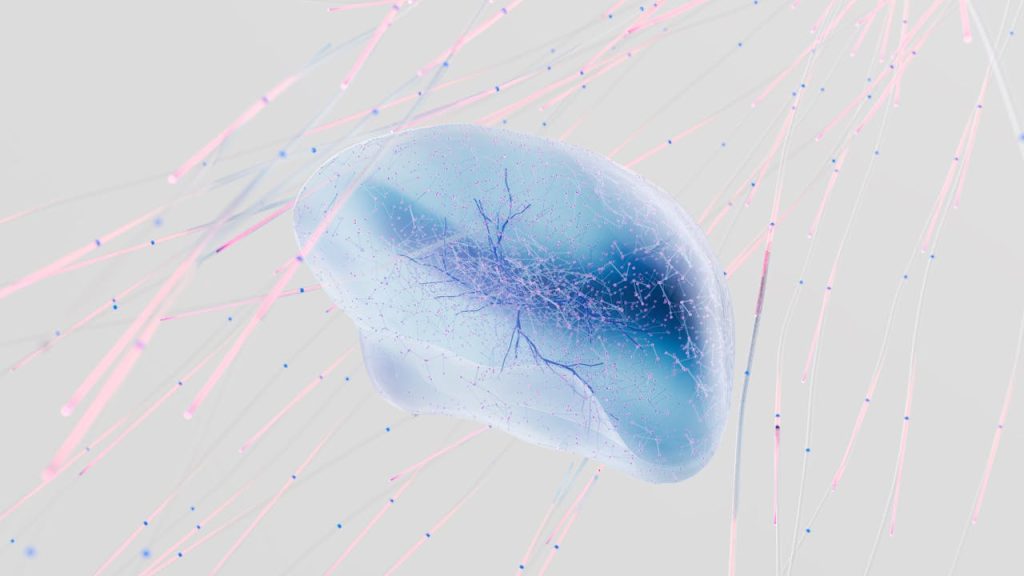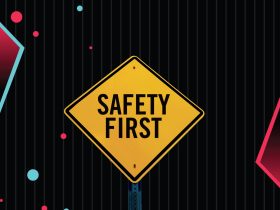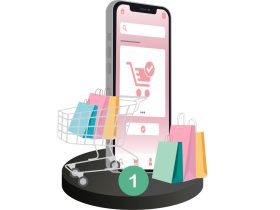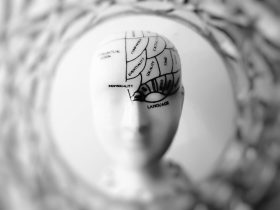In today’s article, we explore the role of AI in mental health. To help us with this, we have Horváth Emil László, a mental health specialist, stress management facilitator, coach, and trainer.
Our goal is to reduce the fear surrounding AI, provide information, and showcase how artificial intelligence can support our everyday lives, either as a helper or as a specific problem solver. There is little information on how AI is revolutionizing healthcare, improving the early diagnosis of diseases, and, furthermore, how it can support our well-being.

Horváth Emil, as a mental health specialist and health promoter, will discuss both the current and future roles of AI in mental health:
The role of AI in mental health is evolving dynamically, and it is already having a significant impact on prevention, individual support, and healthcare. I have been reflecting a lot on AI’s role in this area. I want to share with you my insights and thoughts on what the near future may look like in this regard.

The Current Situation
AI already offers significant tools to support mental health, which readers can find in the previous article titled Mental Health Apps in 6 Areas.
I won’t add much to that, as I’ll approach this from a slightly different perspective, categorizing these „helpers” based on their functions rather than their technical aspects.
- Chatbots and Digital Therapists: These often serve as the first contact for those who need mental health support but are hesitant to approach a professional. These tools provide emotional support at a low cost and are available at any time.
- Diagnostic Support: AI systems can recognize patterns in large datasets (e.g., behavioral data or psychological survey results) that could predict the risk of mental health disorders.
- Monitoring Systems: These include wearable devices and apps that track sleep, pulse, and other biometric data, using AI to provide personalized suggestions (e.g., smart wristbands, smartwatches, chest straps).
- Content Therapy: AI creatively helps create meditation, relaxation, and mindfulness content, which are growing in popularity.
Near Future (1-2 years)
The current effects will be even more pronounced. People are gaining more information about these tools due to the influence of social media. While these tools are available to everyone, technological, cultural, and economic factors influence access, which can vary depending on where people live. These factors will likely influence how quickly these tools spread in certain communities.

Where AI’s Role in Mental Health Can Make a Big Impact
- Personalized Care: AI algorithms will enable even more precise, tailored therapies and interventions. AI will be able to adapt in real-time to the user’s emotional state.
- Early Detection: AI-based systems could identify mental health disorders earlier than traditional methods, using voice samples, text messages, or social media activity analysis.
- Widening Access: AI solutions will make mental health support accessible to those who cannot access traditional care due to geographical, financial, or other reasons (such as cultural taboos or gender identity concerns). For example, a young person with social anxiety may be afraid to visit a therapist’s office but could use an AI chatbot at night to express their feelings and receive advice on next steps.
- Integrated Systems: AI will connect various data sources (e.g., medical data, daily habits, mental health metrics like stress levels, mood, focus, attention, memory, etc.), offering a holistic view of patients.

Undeniable Advantages of AI in Mental Health Care
Accessibility: The 24/7 availability and scalability of AI (being able to serve thousands or even millions of users simultaneously) will revolutionize basic mental health care. For example, AI doesn’t take breaks, so those in need won’t have to wait for an appointment with a therapist. This is particularly important in crisis situations, where timely support can be life-saving.
Reducing Stigma: Using AI can be less intimidating for users than seeing a live therapist. For example, a young person with social anxiety might use an AI chatbot at night to express their feelings and get advice, rather than visiting a therapist.
Cost-Effectiveness: AI tools provide a more affordable alternative, especially for basic support.
Data-Driven Decision Making: The data collected by AI can result in more accurate treatment plans.

Disadvantages and Concerns from a Mental Health Professional
- Lack of Emotional Connection: AI systems cannot provide genuine human empathy and connection, which are fundamental in treating mental health issues.
- Ethical Issues: Collecting and handling sensitive data raises serious privacy concerns.
- Faulty Algorithms: Biases or inaccuracies in AI systems could be dangerous, especially in diagnostic or therapeutic recommendations (Is AI Good for Women?).
- Overdependence: People may become overly reliant on AI, undermining trust in traditional professional care, and may become entirely dependent on these tools, which could have a negative effect. This could lead to destructive rather than constructive behavior.
- Limits of AI: In my opinion, AI cannot recognize or handle complex human relationship dynamics, such as processing deep emotional trauma, or addressing couple or family therapy needs.
Where Will AI’s Competence Boundaries Lie?
AI is excellent for providing basic support, such as:
- Teaching relaxation techniques.
- Monitoring sleep and stress levels.
- Evaluating questionnaires and providing feedback.
- Presenting simple coping strategies.
However, in processes that require deeper, personal emotional work, such as trauma processing, addressing relationship issues, or deep self-awareness, AI should only play a complementary role. Empathetic connections and complex emotional support are the realm of human professionals.

My Concerns
- One of my doubts arises from the potential „complications” caused by the assumption of AI’s misleading perfection! People may be inclined to believe that AI is infallible, which can lead to disappointments in the long run. And when a person experiences a disappointment they can’t easily process, the reaction/attitude can be twofold. One type includes those who blame themselves for everything (Self-pitying: internal-passive-destructive attitude). This usually involves having a lot of negative thoughts about oneself, which could even lead to depression. The other type is the one that blames external circumstances (Blaming: external-active-destructive). In this case, the person looks for someone or something they can direct their anger at, assigning blame – after all, they themselves aren’t at fault.
- My next doubt concerns the differences between needs and opportunities: The rapid pace of technological development is faster than the reduction of skepticism and mistrust from people (both helpers and clients). While AI offers more and more opportunities in the field of mental health, people are often not yet ready to fully accept and use it.
- Social inequalities: The accessibility of AI-based solutions heavily depends on infrastructure, which could further deepen inequalities. What I fear is that it will be difficult to access these solutions in poorer geographical regions or among people living in disadvantaged economic circumstances. Yet, it is precisely in these areas that the support would be most relevant.
AI undoubtedly has immense potential to improve mental health, but the question still remains: Can it replace human connections and develop the skill of empathy? The key to the future may ultimately lie in balance! That is, how we can use AI for mental support without dehumanizing care and ignoring professionals.
These are great professional questions. What do you think? Share your opinion in the comments!















Leave a Review